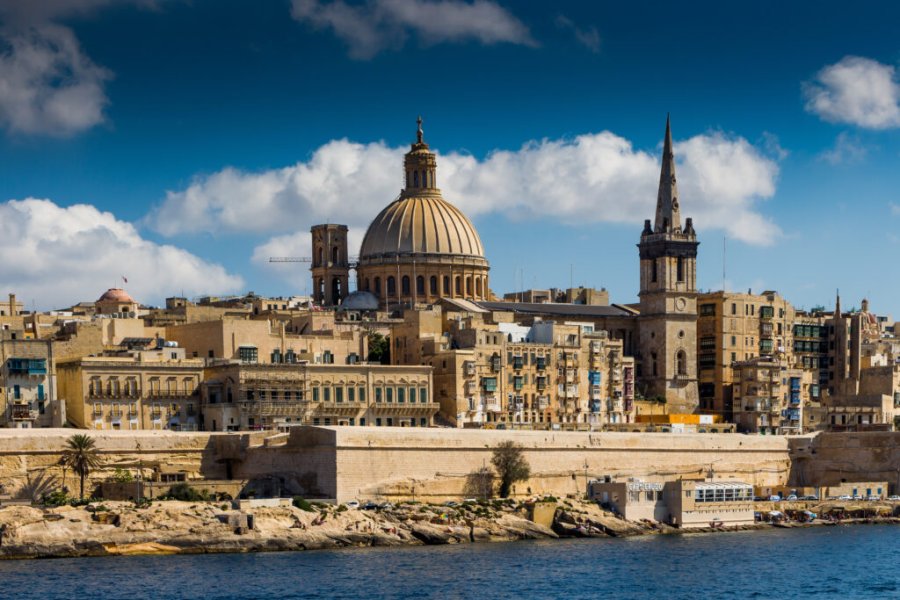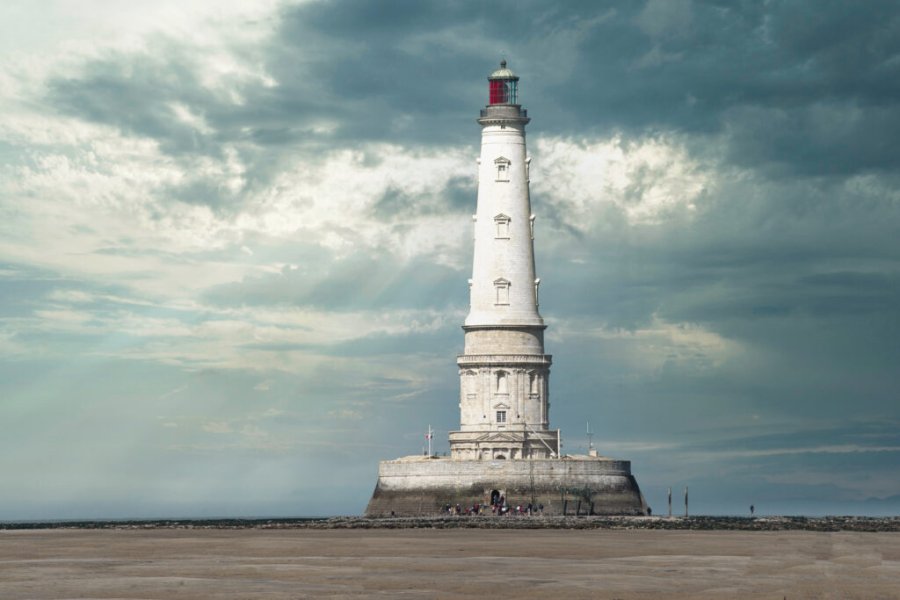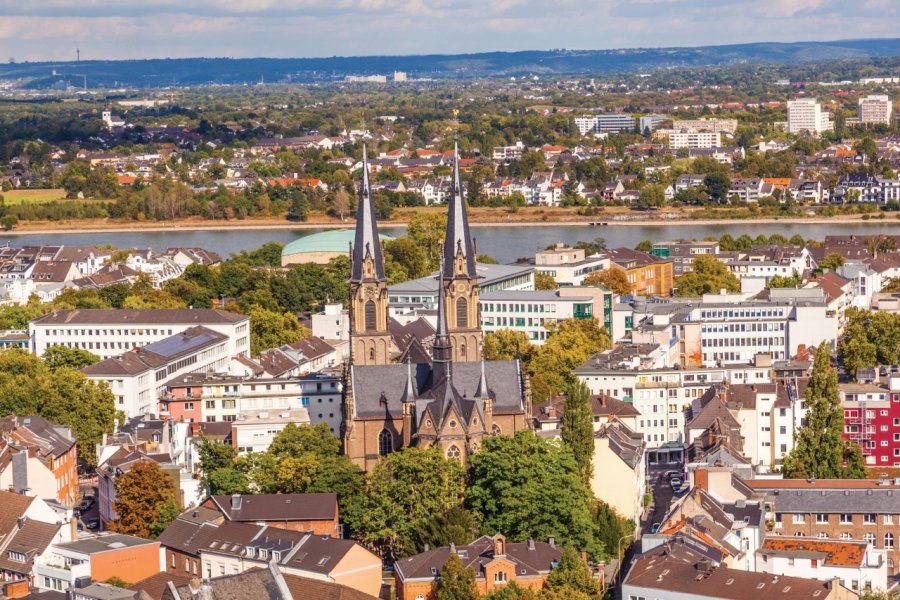Travel Guide Bonn
Find an accommodation
Advertising
At the first glance, Bonn appears as a sweet little bourgeois and university town, with baroque or rococo houses covered with stucco. It is hard to imagine that for 50 years, from 1949 to 1999 (when the transfer of German ministries and government to Berlin was definitively completed), Bonn was the federal capital of Germany. However, although it now appears almost asleep, its inhabitants still include many intellectuals, and its cultural life has remained dense. It is the city of Beethoven, a heritage that it does not fail to highlight, as during the Beethovenfest festival (www.beethovenfest.de, in September). A good handful of high-quality museums and the presence of the institutions and ex-institutions of the Federal Republic also make a visit to the city of interest.Finally, its pedestrian streets with their colourful charm make it very pleasant and charming, and rest from the hustle and bustle of Cologne or Düsseldorf.History. The Romans had already distinguished it. They had established a Flavia Minerva legion on the Rhine. The patron saints of the city are Roman: Cassius and Florentinus died here as martyrs in the early days of Christianity. During the Franks' time, Bonn became a flourishing trading city.After the Middle Ages, the city continued to develop under the leadership of the prince-electors of the Wittelsbach house. Among them, Clemens-August (18th century) who had most of the city's monuments built.With the French Revolution, the splendour of the court would not last: in 1794, Bonn was governed by Maximilian-Franz, Marie-Antoinette's brother, so the French troops never stopped until they had taken over the city and the entire region. In 1804, Napoleon stayed there briefly. After 1815, the date of the Congress of Vienna, the Rhineland was attributed to Prussia. We know the poor traditional relations between these two regions. But Bonn owes at least to Prussia the creation of its university, which seems to have given a decisive boost to the city's development.At the beginning of the 20th century, an extremely rich city. But it suffered greatly from the war and aerial bombardments, which destroyed the city centre in 1944. With the occupation of the Allies, the period of denazification had come. The aim was to make Germany a democratic country, to curb its power, which had proved harmful, and to give it a new capital. In 1949, the Parliamentary Council met in Bonn to draft the Basic Law, i. e. the German Constitution. From then on, the choice was made for Bonn. This city of 310,000 inhabitants quickly symbolized the new Germany, which had become the city of the economic miracle (Wirtschaftswunder). It was also during this period more than ever a city of the Catholic bourgeoisie whose conservatism was mocked by Heinrich Böll in his book La grimace.The fall of the wall would change its fate: following a vote by the parliamentary assemblies, Berlin became the official capital once again. Bonn lost government and a majority of its embassies. But its bourgeois charm has not changed: Bonn is a very pleasant, gentle and quiet city, which offers interesting visits for those who take the time to discover it..
What to visit Bonn?
Advertising
Weather at the moment
Advertising
Organize your trip with our partners Bonn
Transportation
Book your plane tickets
Car Rental
Boat rental
Accommodation & stays
Find a hotel
Holiday rental
Find your campsite
Tailor-made trip
Immersion travel
Services / On site
Activities & visits
Find a doctor
Bonn travel inspiration
Find unique Stay Offers with our Partners
Pictures and images Bonn
Other destinations nearby Bonn
25 km away














